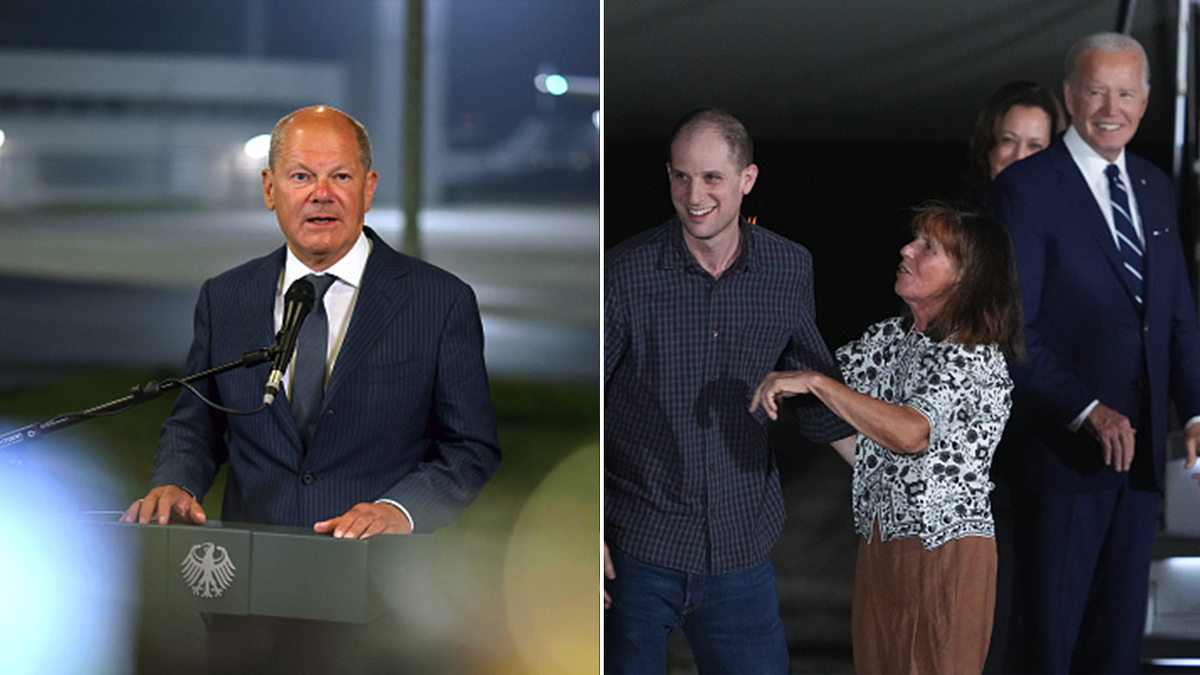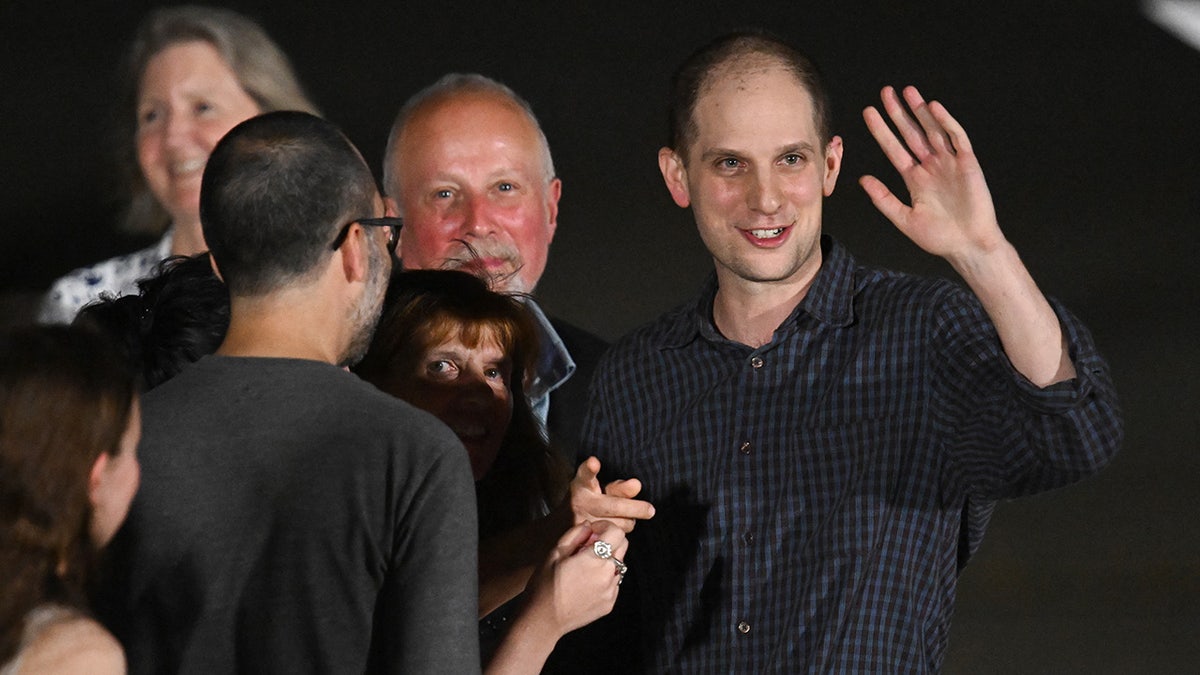The German government, and especially Chancellor Olaf Scholz, played a key role in facilitating the prisoner swap that allowed Wall Street Journal reporter Evan Gershkovich and 15 others to leave Russia. And former President Trump reportedly played an indirect role in the negotiations.
According to a Wall Street Journal report, German intelligence official and lead negotiator Philipp Wolff "saw an opening" when his Russian counterparts said they wanted to make a deal before November's American presidential election.
"Some officials deduced that the Russians were either concerned about an unpredictable Donald Trump coming again to the presidency, or they feared that Scholz would no longer be willing to help a president who rarely misses an opportunity to criticize Germany," the Journal reported.
President Biden was "personally engaged" in diplomatic efforts to bring three American citizens, including Gershkovich, back home, according to National Security Adviser Jake Sullivan's comments Thursday. However, those efforts included help from German Chancellor Scholz and leaders of other countries in the exchange that ultimately freed 16 Russian, American and German prisoners held by the Russian Federation.
EVAN GERSHKOVICH FREED: 5 REVELATIONS FROM MASSIVE WALL STREET JOURNAL REPORT ON GETTING HIM HOME

The German government, and especially Chancellor Olaf Scholz, played a key role in facilitating the prisoner swap that allowed Wall Street Journal reporter Evan Gershkovich and 15 others to leave Russia. (Getty Images)
Trump said earlier this year that he would get Gershkovich home in a hypothetical second term.
"The reporter should be released, and he will be released," Trump said during an interview with TIME published in April. "I don’t know if he’s going to be released under [President] Biden. I would get him released."
In an interview with FOX Business host Maria Bartiromo, Trump called the deal that brought home Gershkovich and others a "win" for Russian President Vladimir Putin.
"As usual, it was a win for Putin or any other country that deals with us, but we got somebody back, so I'm never going to be challenging that," he told Bartiromo.
"It wouldn't have happened with us. We would have gotten him back. We wouldn't have had to pay anything. We wouldn't have had to let some of the great killers of the world go, because that's what's happened, as you know. And the deal is very complex because it just came out. So nobody understands the deal yet, and they make it complex so you can't understand how bad the deal is for us."
The German government agreed to swap Russian assassin Vadim Krasikov in order to free prisoners in a deal that the Journal reported was hotly opposed by members of the German security establishment and diplomatic corps.
One of the prisoners freed in the exchange said that the German government accomplished its most important goal: saving a human life.
BIDEN CALLS RUSSIA PRISONER SWAP DEAL THAT FREED WSJ'S GERSHKOVICH, WHELAN A ‘FEAT OF DIPLOMACY’

Reporter Evan Gershkovich waves after returning to the United States after nearly 500 days in Russian custody. (ROBERTO SCHMIDT / AFP via Getty Images)
"Nothing can be more important in a normal, human, democratic government than saving a human life," democracy activist Vladimir Kara-Murza said. Kara-Murza was one of the prisoners who was greeted by Scholz at the airport.
The negotiation process was taxing, with one senior official describing a breakthrough meeting in early spring during which the Germans revealed they would be willing to swap Krasikov for several people.
"We made it clear: We are ready, but only if the price is right," a senior official told The Journal.
CLICK HERE TO GET THE FOX NEWS APP
Fox News' Gabriel Hays contributed to this report.









































